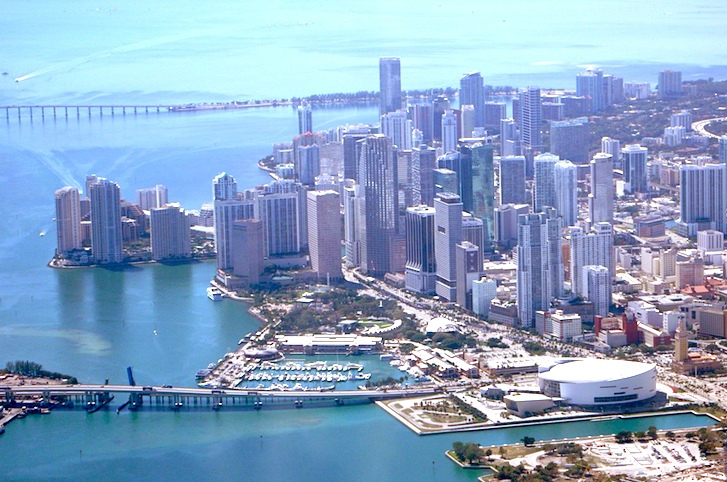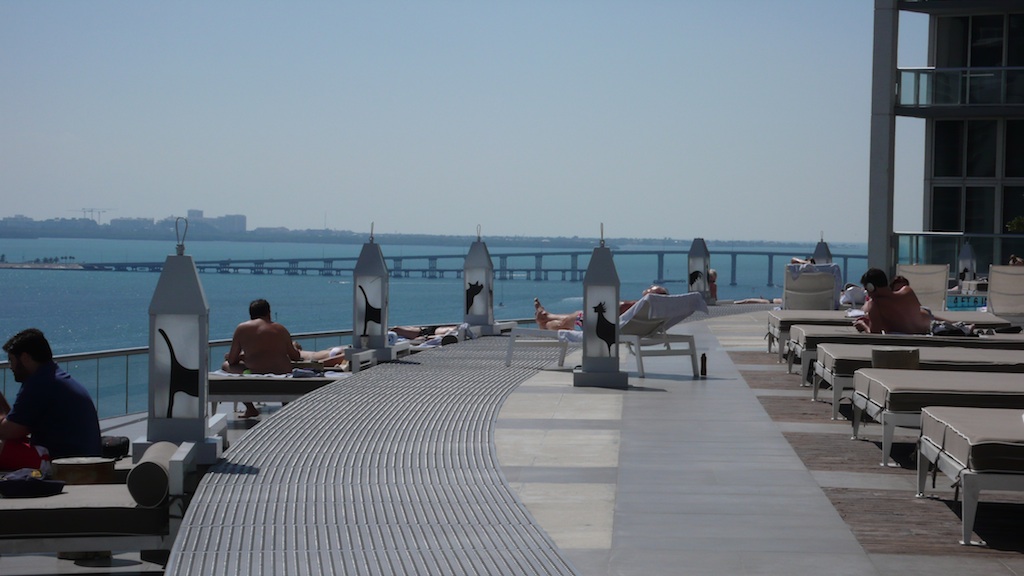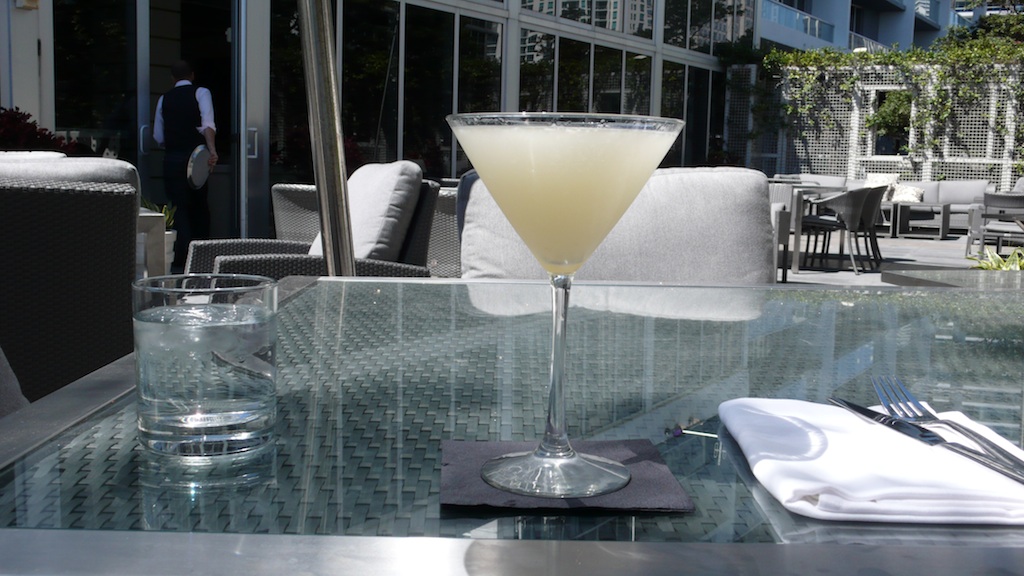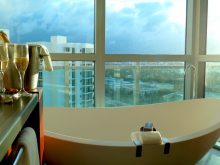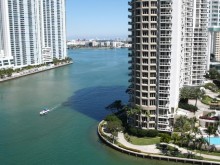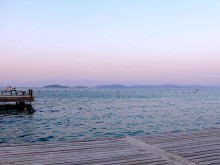For many who know Miami, the name “Julia Tuttle” holds as much allure as sitting in traffic, thanks to its appellation on the causeway over Biscayne Bay. But, as with so much about the “Magic City,” there’s more to Julia Tuttle than meets the eye.
Posthumously christened the “Mother of Miami,” Julia Tuttle was a 19th-century citrus grower who persuaded the rail tycoon, Henry Flagler, to bring his railroad further south to what was then called Fort Dallas.
Named for the Mayaimi Indians and the river that runs through it, Miami is one of the few American cities conceived by a woman. A native of Cleveland, Tuttle built a home with magnificent views of the Miami River and Biscayne Bay – and a century later, that spectacular bayfront vista of blue skies and cerulean waters still hypnotizes visitors and residents.
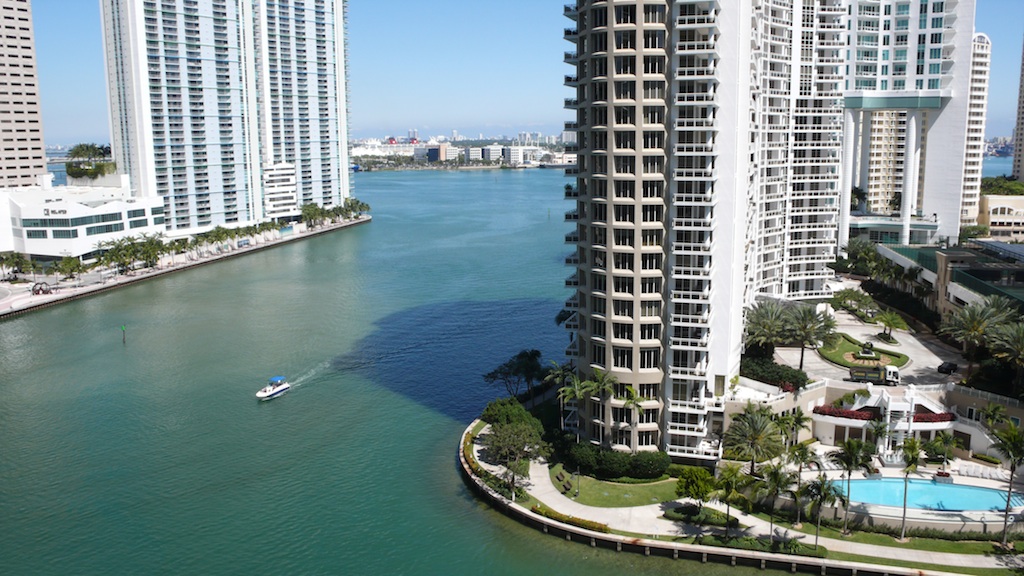
While South Beach has the market on Art Deco structures, downtown Miami has long been a haven of sleek and sophisticated architectural design. (Source: MRNY)
Surrounded by the glittering apartment towers of Brickell (and the nation’s largest concentration of international banks), downtown Miami can sometimes feel like the apotheosis of a 19th-century visionary’s dreams of a 21st-century city.
While the recent boom in high-rise construction in downtown Miami has produced its share of headaches related to the foreclosure crisis, the city’s skyline is nonetheless architecturally impressive (so much so that the Almanac of Architecture and Design ranked it third in the United States).
Miami MiMo
Since the heyday of Miami Modernist (MiMo) architecture and the work of Morris Lapidus in the 1950s and 1960s, the city of Miami has served as an architectural arbiter of glamour and fun. While South Beach has the market on Art Deco structures, downtown Miami has long been a haven of sleek and sophisticated architectural design.
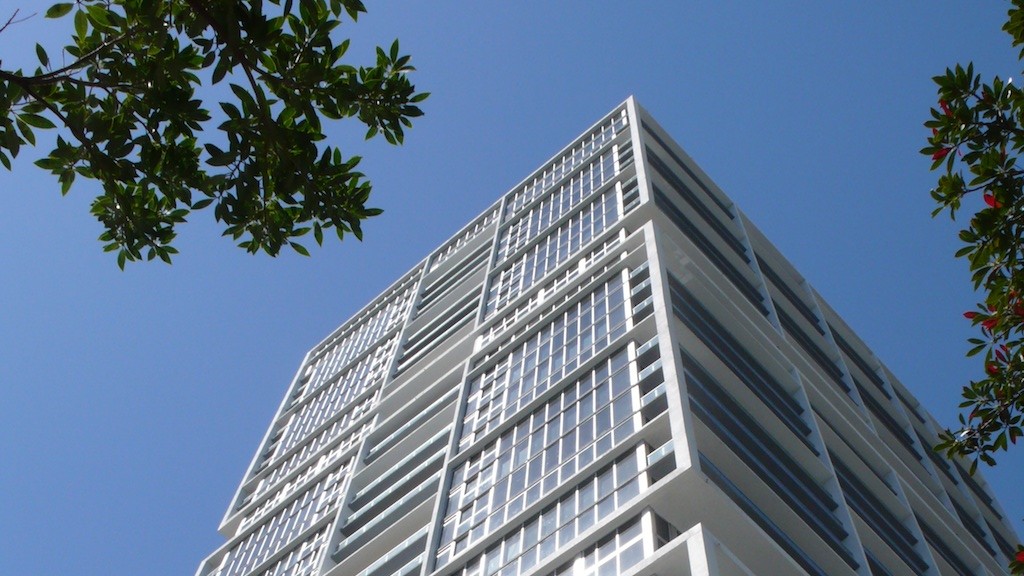
Opened in 2009, Icon Brickell’s “city within a city” contains nearly 1,800 residences in two 58-story towers and one 50-story tower. (Source: MRNY)
Visitors to Arquitectonica‘s Icon Brickell complex, a three-tower waterfront enclave that encompasses ten acres in Miami’s financial center, might be forgiven for imagining that they’ve slipped down a rabbit hole and landed in Alice’s Wonderland.
Opened in 2009, Icon Brickell’s “city within a city” contains nearly 1,800 residences in two 58-story towers and one 50-story tower that soar into the sky in vertiginous splendor and enhance the sense of a visitor becoming ever more Lilliputian.
Anchoring the spectacular complex is the 15th-floor two-acre pool oasis that leads to the waterfront with its commanding aerial views of Brickell Key, Biscayne Bay, the Miami River, and an ongoing expanse of azure blue water and cloudless sky. From this perspective, with the breadth of Miami’s natural beauty expanding outward to the horizon, it’s possible that a visitor might experience something similar to the empyrean dreams of Julia Tuttle.
Located within the Viceroy Tower, the Viceroy Miami is a 148-room boutique hotel with interior design by Kelly Wearstler. Wearstler’s playful interpretation of Miami glamour results in a whimsical setting analogous to Alice’s Wonderland. Florida’s longest infinity-edge pool is flanked by oversized planters and a life-size chess set. A stroll beneath an allée of Japanese blueberry trees leads to a series of ever-broadening steps along the waterfront, where visitors recline on massive daybeds in a 21st-century reimagining of Georges Seurat’s “A Sunday Afternoon on the Island of La Grande Jatte.”
Complementing Wearstler’s oversized scale is the Philippe Starck-designed Spa at Viceroy Miami, a 28,000-square-foot spa and fitness center, which has been lauded for its awe-inspiring vistas and which was voted one of the “Top Spas” for 2013 by Condé Nast Traveler. A double-height 5,000-square-foot water lounge recalls the proportions of the Baths of Caracalla.
Miami’s “Museum of the Streets”
While it’s easy to linger amidst the pleasures of this expansive resort (long-term stays are available at the Residences at Viceroy Miami), the hotel is centrally located and only a few minutes’ drive from many of Miami’s more celebrated cultural attractions.
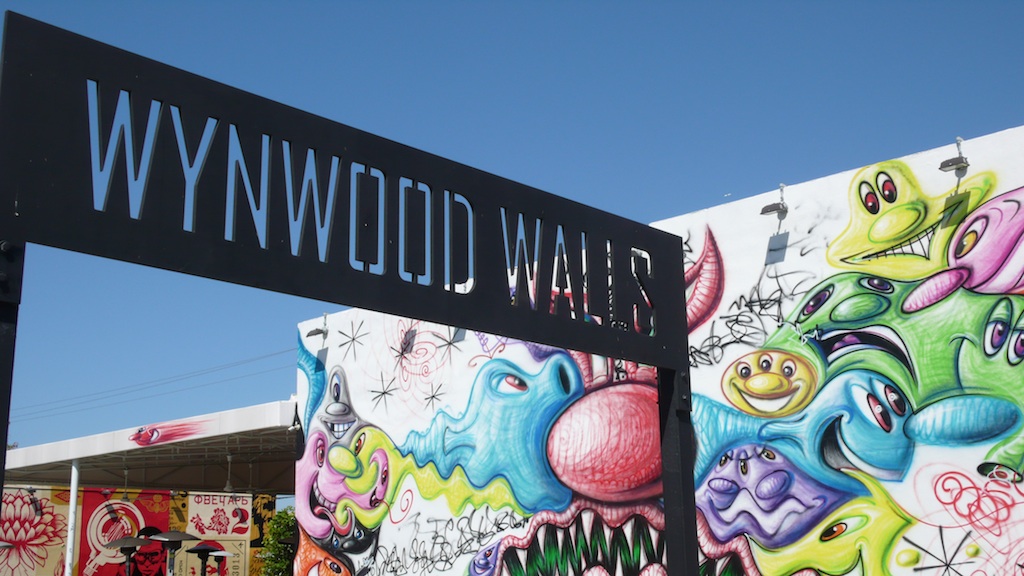
Established in 2009 by Tony Goldman and Jeffrey Deitch, Miami’s open air “museum of the streets” includes more than 40 murals by graffiti artists. (Source: MRNY)
Guests of the Viceroy Miami can partake of a complimentary car and driver, featuring Mercedes-Benz vehicles. After a morning swim in the 300-foot pool and a leisurely breakfast at Eos, one of the hotel’s three dining options, why not book a Benz for a wander through nearby Wynwood?
Located next to the Design District, Wynwood is Miami’s latest art district and the Wynwood Walls is an outdoor collection of some of the world’s greatest street art. Established in 2009 by Tony Goldman and Jeffrey Deitch, Miami’s open air “museum of the streets” includes more than 40 murals by graffiti artists such as Futura 2000, Shepard Fairey, Kenny Scharf, and Ryan McGinness. There’s also Scharf’s day-glo Airstream trailer with the original interior fittings rendered in kaleidoscopic black-lit splendor.
At the Wynwood Kitchen & Bar, you can eat and drink some of Florida’s indigenous culinary bounty beneath the gaze of Tony Goldman as depicted by Shepard Fairey. Wet your whistle and raise your glass to another of Miami’s visionaries.
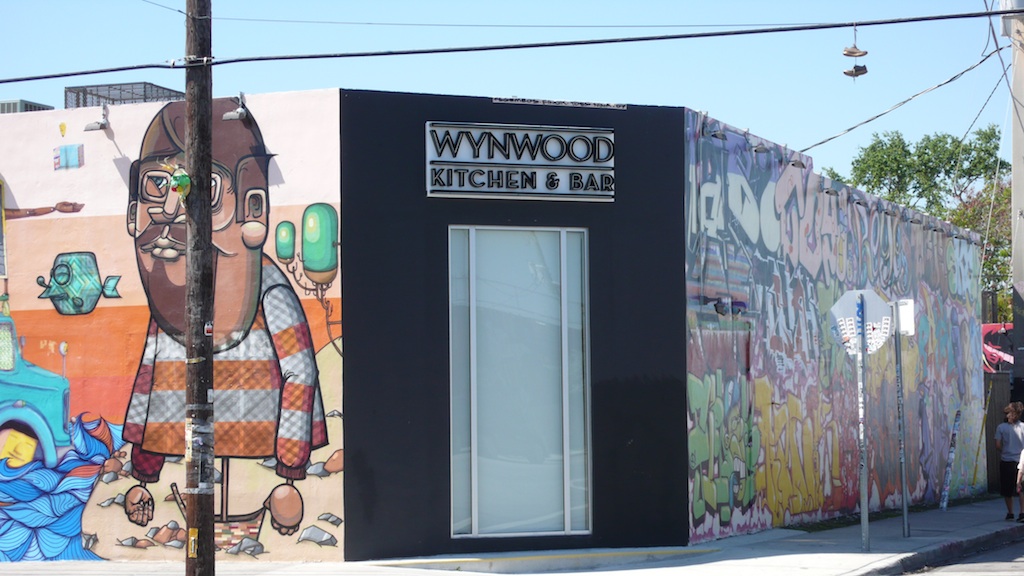
At the Wynwood Kitchen & Bar, you can eat and drink some of Florida’s indigenous culinary bounty. (Source: MRNY)
In the evening, consider a stroll around the Brickell neighborhood. Mary Brickell Village is located just off 10th Street, a quick ten-minute walk from the Viceroy. Then again, why leave the two over-sized, heated spa whirlpools? There’s also a plush screening room at Spa at Viceroy Miami that recalls the golden age of Hollywood studios, which is perfect for truffled popcorn and a private screening of Streisand and Redford in “The Way We Were.”
The Viceroy Miami has been granted Pink Flamingo certification, which ensures a welcoming space for LGBT travelers and which is in keeping with a hotel whose motto is “Memento Vivere,” which is Latin for “Remember to Live.” Or as Ernest Hemingway, one of Florida’s favorite sons, once said, “Live life to the fullest.”
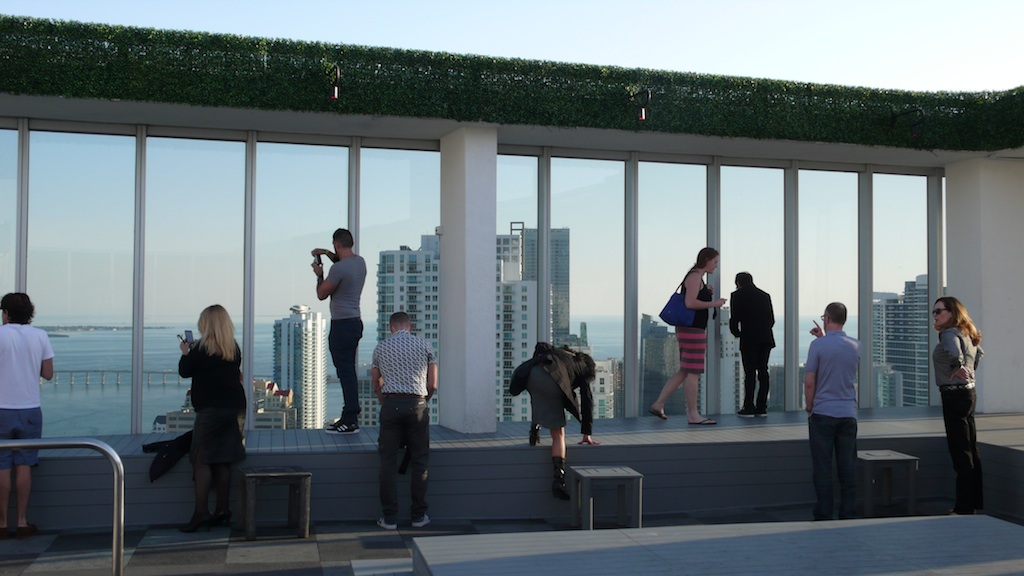
One of the city’s more tony lounges, complete with private pool, Fifty offers breathtaking views of Miami’s glittering nocturnal skyline. (Source: MRNY)
The capacious rooms at the Viceroy Miami average 500 square feet and include four-poster beds, designer chairs, and fully-equipped Pullman kitchens, complete with microwave, stovetop, and glassware. Furnished in a palette of jade and cream with oversized Fu dogs and avian scrims, the decor is an amalgam of the Ming Dynasty filtered through a Miami lens.
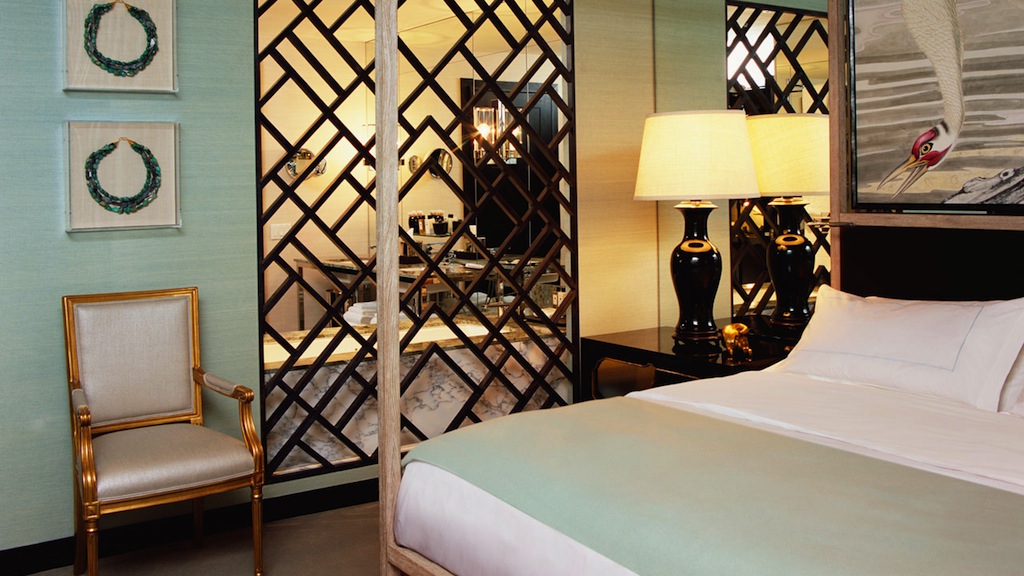
Viceroy Miami King room (Source: Viceroy Miami Hotel & Resort)
In keeping with the hotel’s commitment to sustainability, guests who decline daily housekeeping services are rewarded with a gift certificate to Eos, the hotel’s Mediterranean restaurant.
Late at night, Miami’s nightowls gather at Fifty, the Viceroy Miami’s 50th-floor aerie. One of the city’s more tony lounges, complete with private pool, Fifty offers breathtaking views of Miami’s glittering nocturnal skyline. From this vista, you might consider raising your glass to Julia Tuttle and toasting to her vision in comprehending the spellbinding beauty of Miami.
ADDITIONAL INFORMATION:

